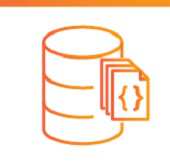| Amazon DocumentDB Adds Global Cluster Support |
| Written by Kay Ewbank | |||
| Tuesday, 08 June 2021 | |||
|
Amazon has added support for global clusters to its DocumentDB database. Amazon DocumentDB was created by Amazon for its internal use to be compatible with the MongoDB API without using any MongoDB code following MongoDB's move to a paid-for model. DocumentDB lets you use MongoDB 3.6 and 4.0 application code, drivers, and tools to run, manage, and scale workloads. It can be used to store, query, and index JSON data.
In November DocumentDB was updated to provide compatibility with MongoDB 4.0, along with support for atomic, consistent, isolated, and durable (ACID) transactions. That release also added better indexing with the ability to use an index with the $lookup aggregation stage, and when carrying out find() queries with projections. The new support for global clusters means users can deploy a cluster that spans across multiple AWS Regions, replicating data in up to five Regions with little to no impact on performance. A global cluster consists of a primary cluster that allows read and write operations, and up to five secondary clusters in other Regions, which allow read operations. The replication from primary to secondary clusters is unidirectional and allows you to create active-passive deployment. The global cluster support includes the ability to recover from Region-wide outages in less than 60 seconds, promoting a secondary cluster to a standalone cluster. The local clusters also improve read latency, and provide high-speed replication across clusters through storage-based physical replication of data from the primary region to secondary clusters in other regions. The compute instances provisioned in primary and secondary Regions don’t participate in replication, which frees them up for serving application requests.
More InformationRelated ArticlesAmazon Ditches MongoDB, Launches Rival MongoDB 4.0 Gets Multi-Doc ACID Support Amazon DynamoDB Accelerator Reaches Preview Amazon Strengthens Data Offerings To be informed about new articles on I Programmer, sign up for our weekly newsletter, subscribe to the RSS feed and follow us on Twitter, Facebook or Linkedin.
Comments
or email your comment to: comments@i-programmer.info |
|||
| Last Updated ( Tuesday, 08 June 2021 ) |



